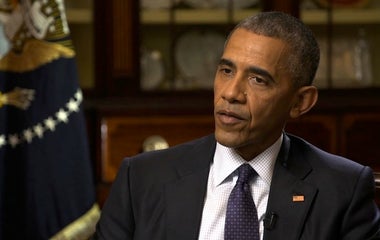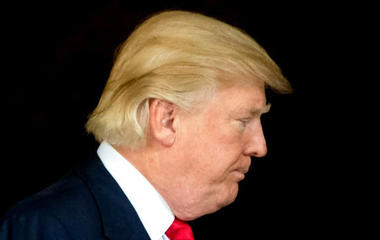The Presstitute Beat: Elizabeth Palmer’s Russian Gyrations
![]()

By the constant administration of lies, the media puppeteers manufacture wars, protect the super-wealthy,
and destroy democracy.
PATRICE GREANVILLE
CBS correspondent Elizabeth Palmer reported truthfully on the Crimean referendum in 2014, but in 2017 she’s selling nothing but lies. What made her repudiate her own prior eyewitness report? Take a wild guess.
In a new report, published Jan. 9, 2017, in the midst of the greatest baseless anti-Russian hysteria in decades, Palmer is conveniently oblivious to her own facts. When the NATO commanders talk about the advisability of “a little more deterrence” against a Russia aggression that no one has ever documented, she fails to ask the good officer, “Why?” Playing dumb, she simply lets the chance slip to ask the central question: Deterrence against what? Except for some cautionary mobilizations inside Russia provoked by America’s own grotesque and foolhardy provocations massing soldiers and equipment on her borders, and with Russia now encircled by Washington vassal states, Russia has done simply nothing to warrant talk about “aggression”, “invasions”, “takeovers”, and similar shopworn anti-communist, russophobic claptrap. Since the corporate press is so sanctimoniously obsessed about the danger to the health of the nation and American democracy represented by “Fake News”, isn’t it time they should at least have the decency to start the hunt by looking at themselves in the mirror?
—P.G
See below:
THIS WAS ELIZABETH PALMER THEN
Report #1: Filed by CBS in March, 2014. Not great, but at least mostly truthful.
Report #2 A similarly truthful report, but much better, filed about the same time (March-April 2014) by PressTV:
Report #3 Aired by CBS on Jan. 9, 2017. A shameless compilation of innuendo and lies.
Below, the CBS transcript of the clip above. Our commentary is in the Comment panel; bolded in red is what we regard as deceitful, misleading or an outright lie buried in the text.
For 1st time since Cold War, U.S. tanks roll into Russia’s backyard
Last Updated Jan 9, 2017 7:20 AM EST
BREMERHAVEN, Germany — Since the end of the Cold War, the U.S. has been drawing down its military presence in Europe. But at the main docks in Bremerhaven, in northern Germany, that’s no longer the case. In fact, CBS News correspondent Elizabeth Palmer reports, quite the reverse is the order of the day.
All the massive hardware of a U.S. combat brigade arrived in Germany over the weekend, and started rolling east toward Poland, where 4,000 American soldiers will be waiting for it.
It is the first build-up of American troops and weapons in Europe in almost 30 years, and as Palmer reports, the impressive display of military might is meant, in large part, to reassure America’s nervous allies in Europe that the U.S. military will be there, standing with them, against any Russian aggression.
Aggression, and land grabs, like the 2014 invasion of Crimea, when Russian troops landed in what had been Ukraine and seized the ground for the Kremlin.
America’s response, manifested with the new deployment, has been to increase both its own force in Europe, and its support of NATO.

Obama blasts Trump’s NATO comments, terrorism rhetoric
However, incoming U.S. President Donald Trump has suggested NATO is obsolete, and said he wants to restore good relations with Russia.
Palmer asked Major General Timothy McGuire how quickly the new president could, as a gesture of good will towards Russia, turn the whole deployment to eastern Europe around and pull them out.
“I’m not going to speculate on what the incoming president may or may not do, but I will tell you this is in the interests of the United States Army, to build readiness,” McGuire replied.

Trump says “only fools” want bad relationship with Moscow
The new commander-in-chief could reverse it all, of course, but Palmer says that would take months, or even years.
Meanwhile, Russian President Vladimir Putin has already indicated that he views the American build-up as pointless.
It’s “stupid and unrealistic,” he said, to think that Russia would attack anyone. But the American military and its NATO allies believe a little extra deterrence won’t hurt.
Once all the troops and equipment of the combat brigade reach their final destinations, at various places in eastern Europe, they will start a series of big multinational exercises with other NATO armies.
The Kremlin said Monday that discussions would begin with Mr. Trump’s administration after his inauguration to determine a time for his first meeting with Putin.
The seat of Russian power also said it was looking forward to putting the current period of tension behind it, suggesting Mr. Trump would usher in “more sober experts.”
—END—

